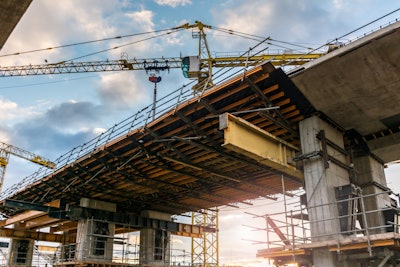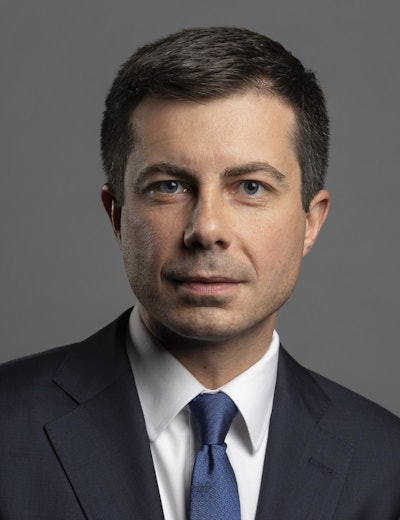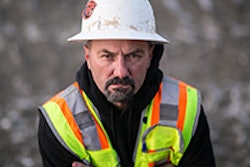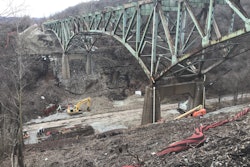
Speaking to state transportation officials from around the country Thursday, U.S. Transportation Secretary Pete Buttigieg stressed that passing Covid relief legislation is the first priority of the administration, but infrastructure would follow.
“It's critically important that we complete this first step now of getting the rescue plan passed so that we can move on to the recovery step,” he told the audience at a virtual Washington briefing for the American Association of State Highway and Transportation Officials.
 U.S. Transportation Sec. Pete Buttigieg
U.S. Transportation Sec. Pete Buttigieg
The administration’s focus on infrastructure and transportation policy will be much broader than just boosting funding. “The president has made clear that safety, equity, economic growth and combating climate change are pillars to everything this administration does,” Buttigieg said.
That means an approach that impacts all Americans including those that have been left behind.
“So we've got to make sure that everything we do drives toward those outcomes that we all want to achieve – a safer transportation network that connects all Americans no matter their race or income, no matter if they're traveling in cars or trains or bikes or on foot or wheelchair,” he said. “We need to create a network that leads to less pollution, that is more resilient for the challenges that climate change is already laying at our feet.”
He spoke of a “generational opportunity” to address the nation’s deteriorating infrastructure in a way that “accelerates equitable growth” and increases the country’s global competitiveness.
“And I think we're going to create a lot of jobs while we're at it,” he said.
As for funding, Buttigieg mentioned little appetite in Congress or in the administration for raising the federal gas tax, which has not been increased since 1993. He said the gas tax was not a long-term solution due to vehicles becoming more fuel efficient and the growth of electric vehicles.
A variety of alternative funding mechanisms have been proposed, such as charging motorists by miles driven. “The trouble, of course, is nobody's been able to present a version that fully resolves the privacy concerns," he said.
Buttigieg did not propose a specific funding mechanism but said that he hoped a long-term policy decision on funding for the Highway Trust Fund would be made, rather than last-minute patchwork. He said the administration is “open minded” to transportation and infrastructure funding discussions, but that certain criteria must be met.
“What we know is that it's got to be sustainable, it's got to be predictable, it's got to be defensible,” he said. “And in an evolving transportation system, we’ve got to set it up in a way that's affordable and doesn't place unfair burdens on low-income families or on rural areas where residents may need to drive more frequently.”
Buttigieg added that the USDOT will use discretionary grants to states and local communities to help achieve the administration’s goal of net zero emissions by 2050.
“The DOT has made clear that part of what we're looking for is projects that address climate change and environmental justice,” he said. “…We're looking for projects that are designed to reduce transportation costs, to improve connections to underserved communities, to reduce barriers to opportunity.”
Projects involving multimodal transportation will also get priority. He also spoke of the need for more rail funding.
“We know that the transportation sector is the largest source of greenhouse gas emissions, that also means it's the largest place where we can be part of the solution,” he said. “That's why we will be acting at the DOT to achieve outcomes. And we know that we will be measured in how we achieve those outcomes.”











